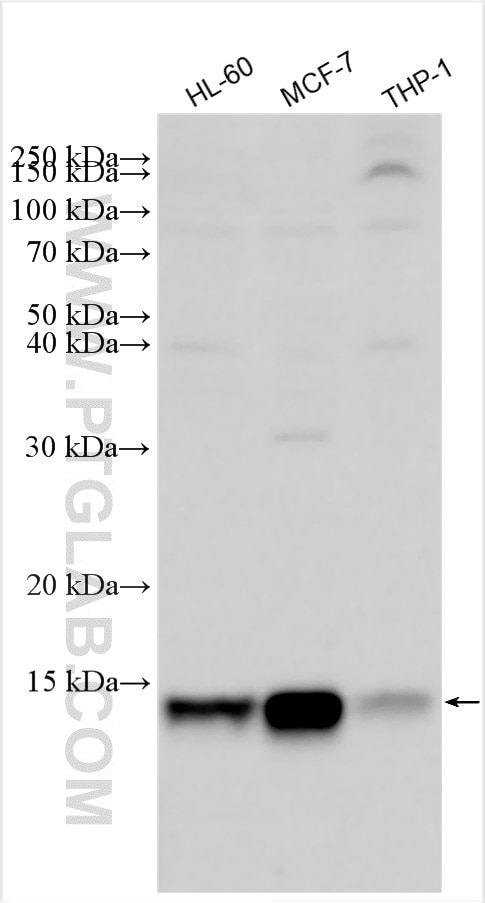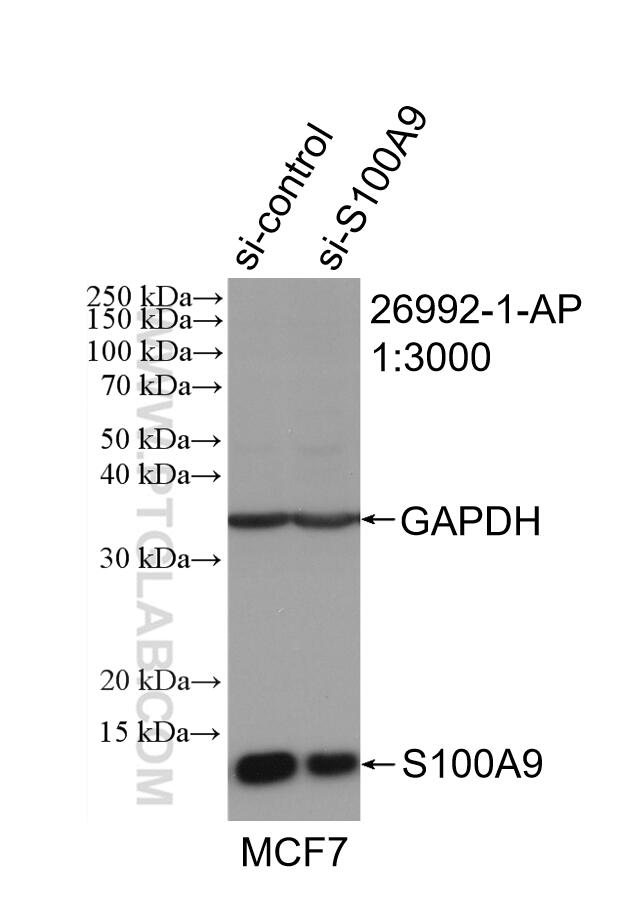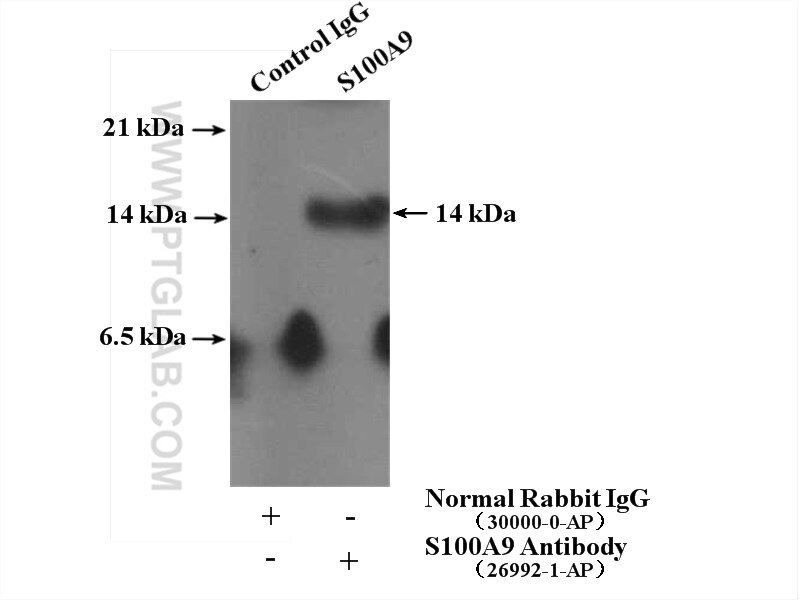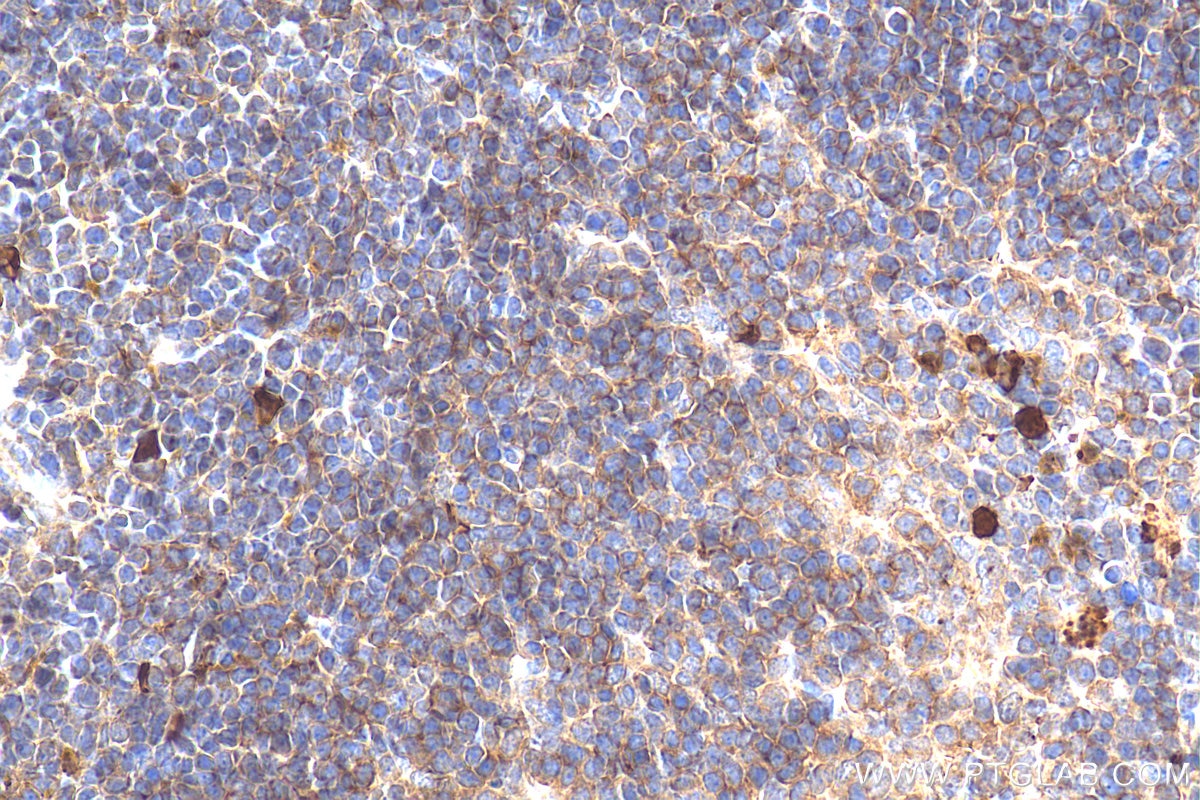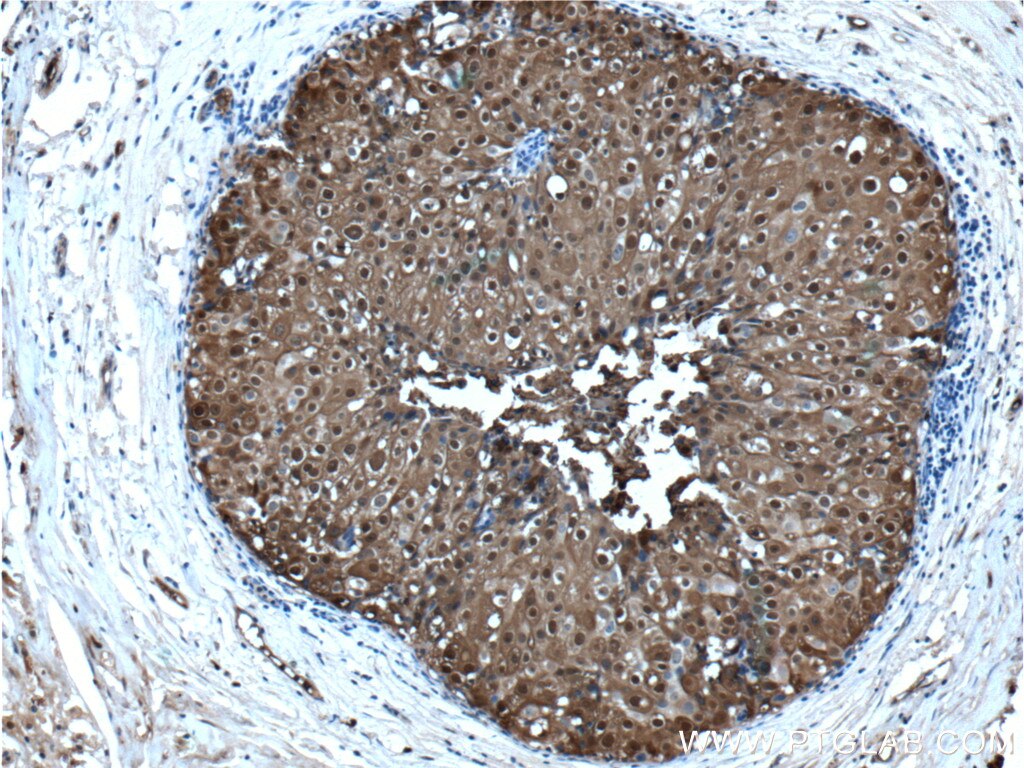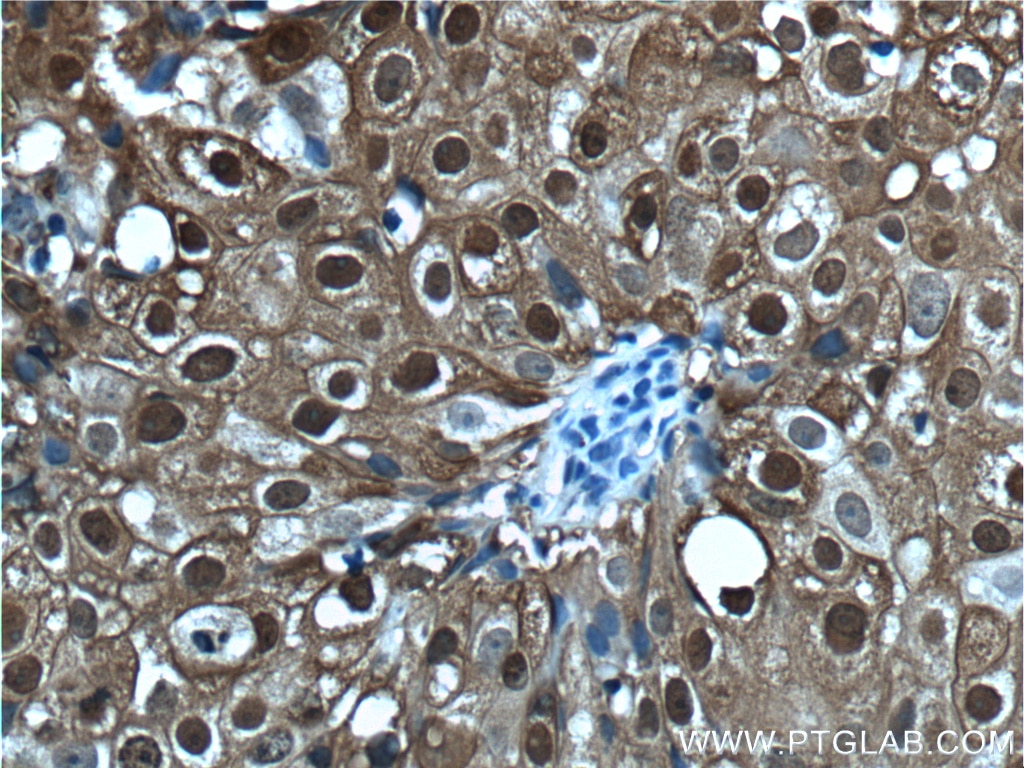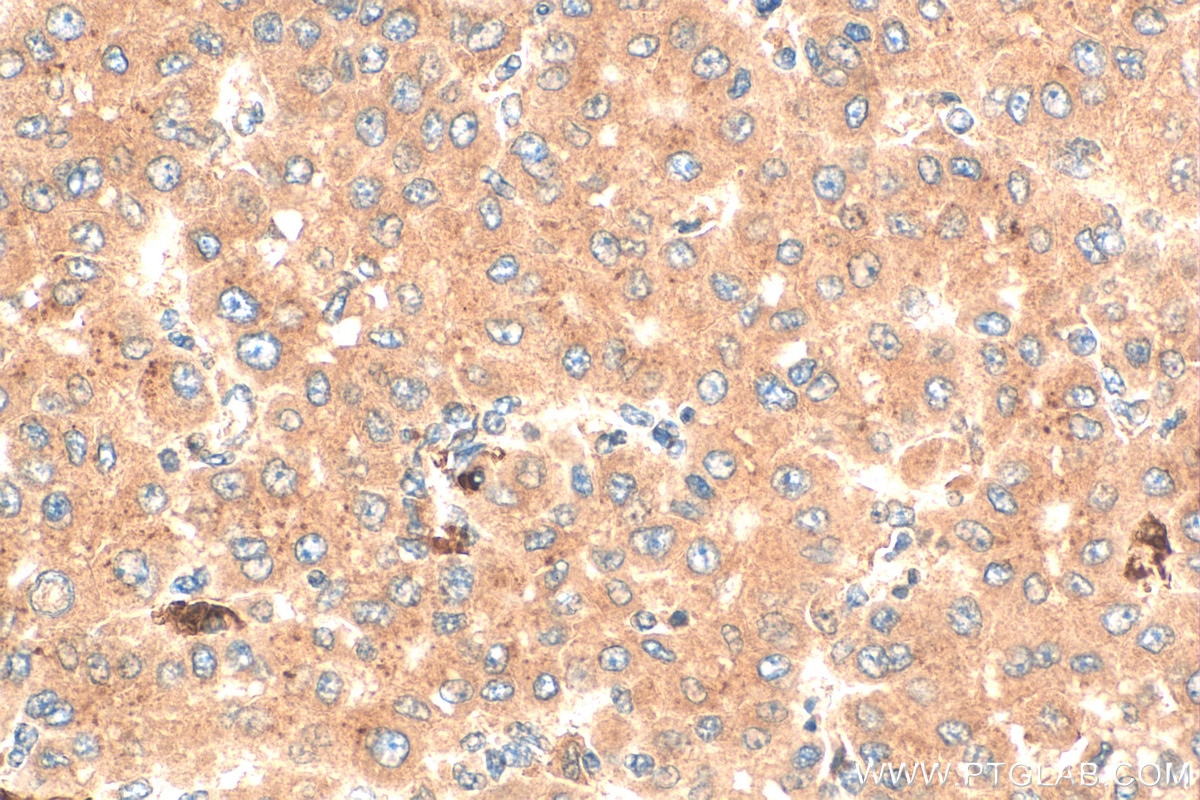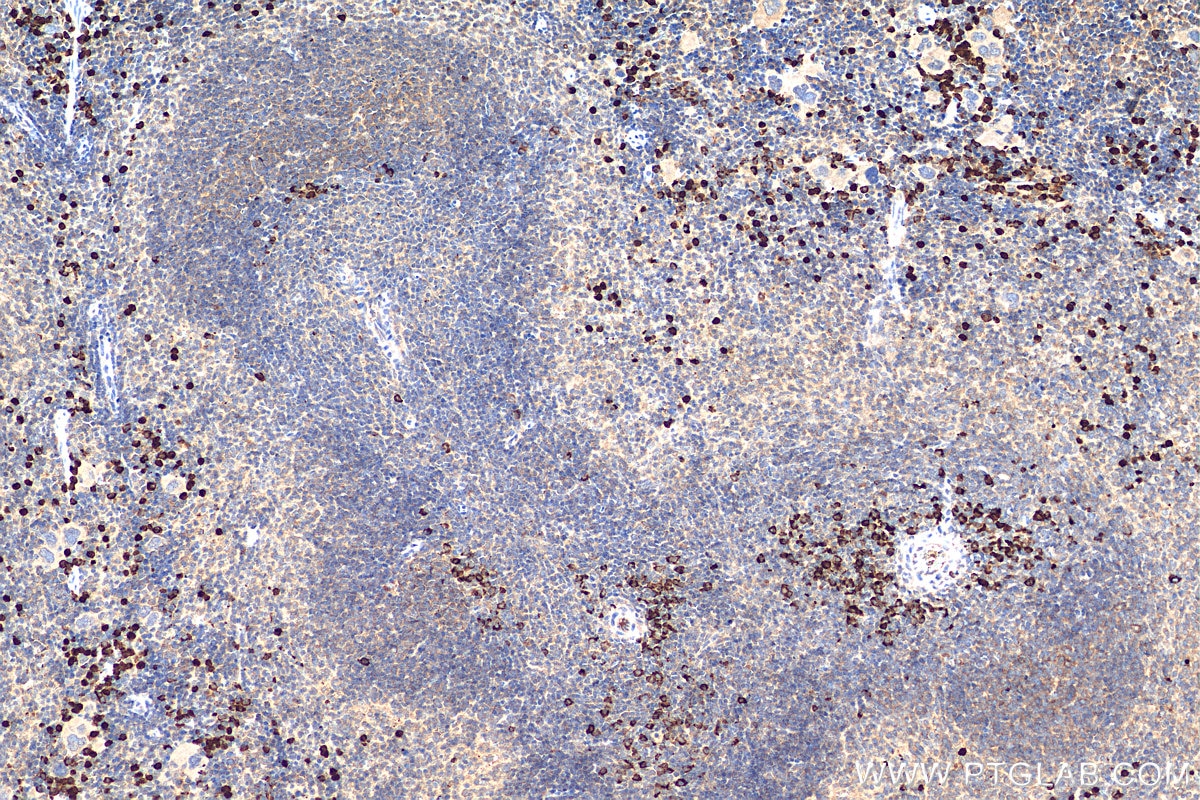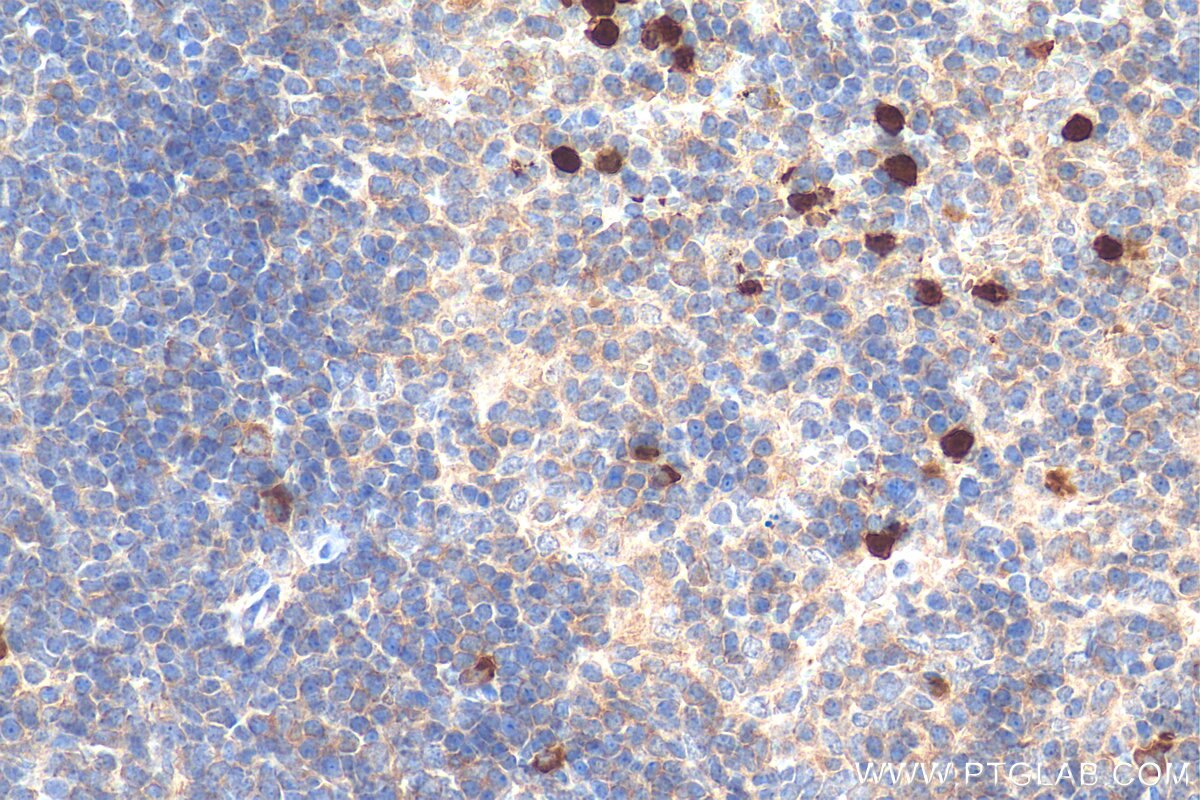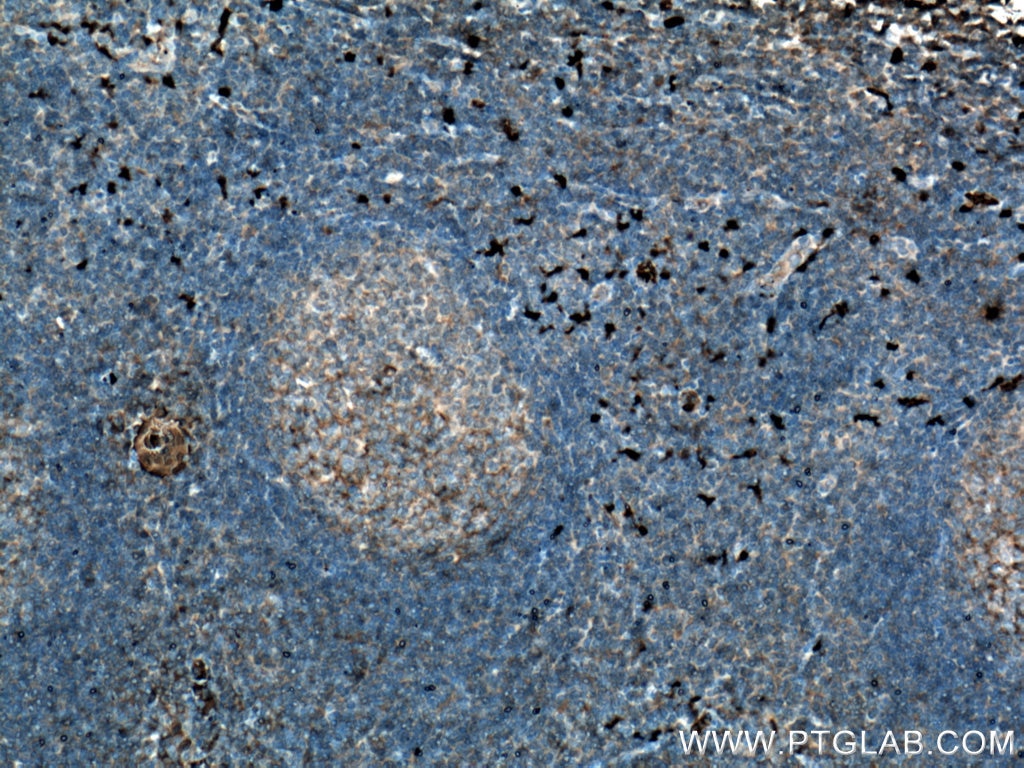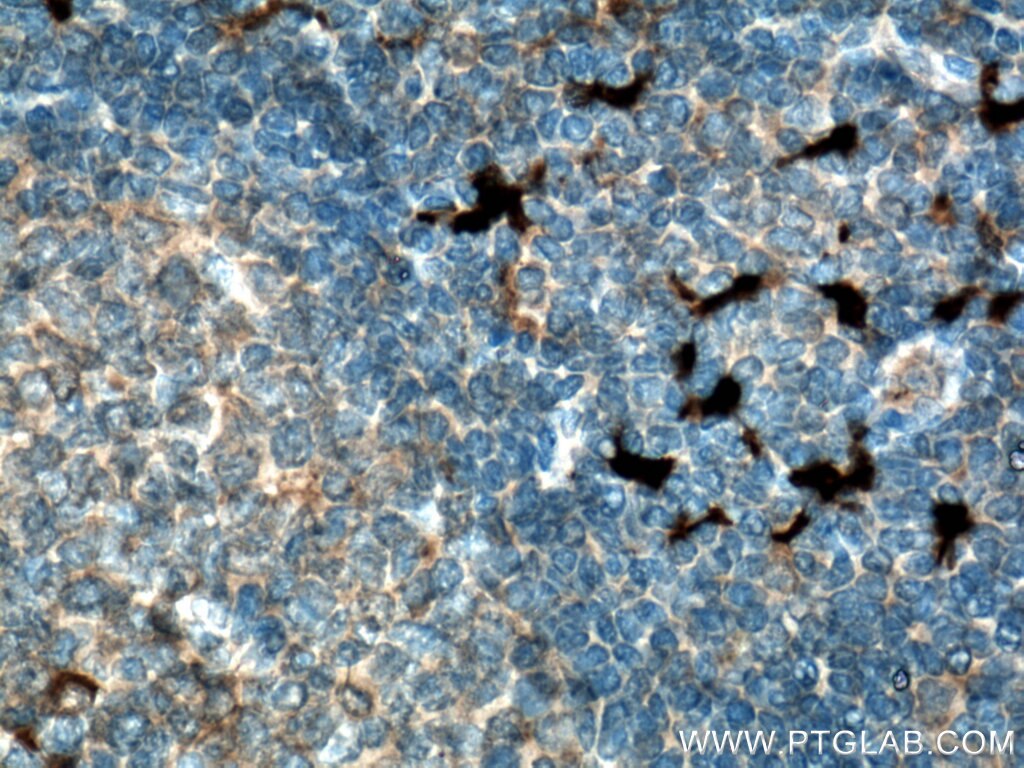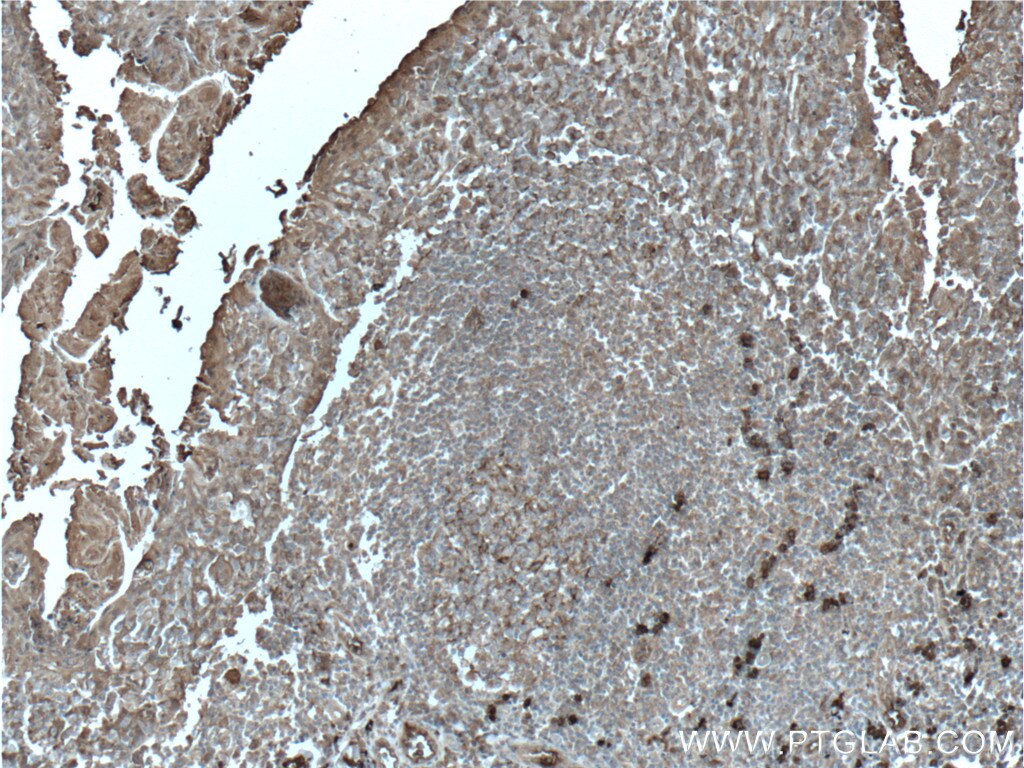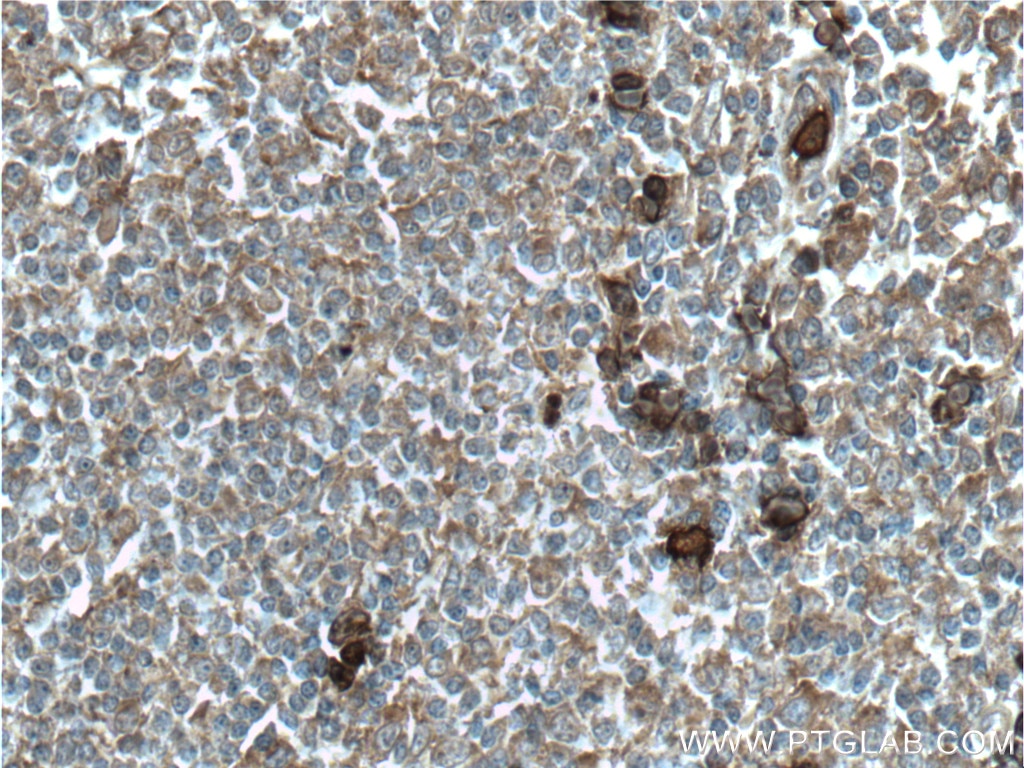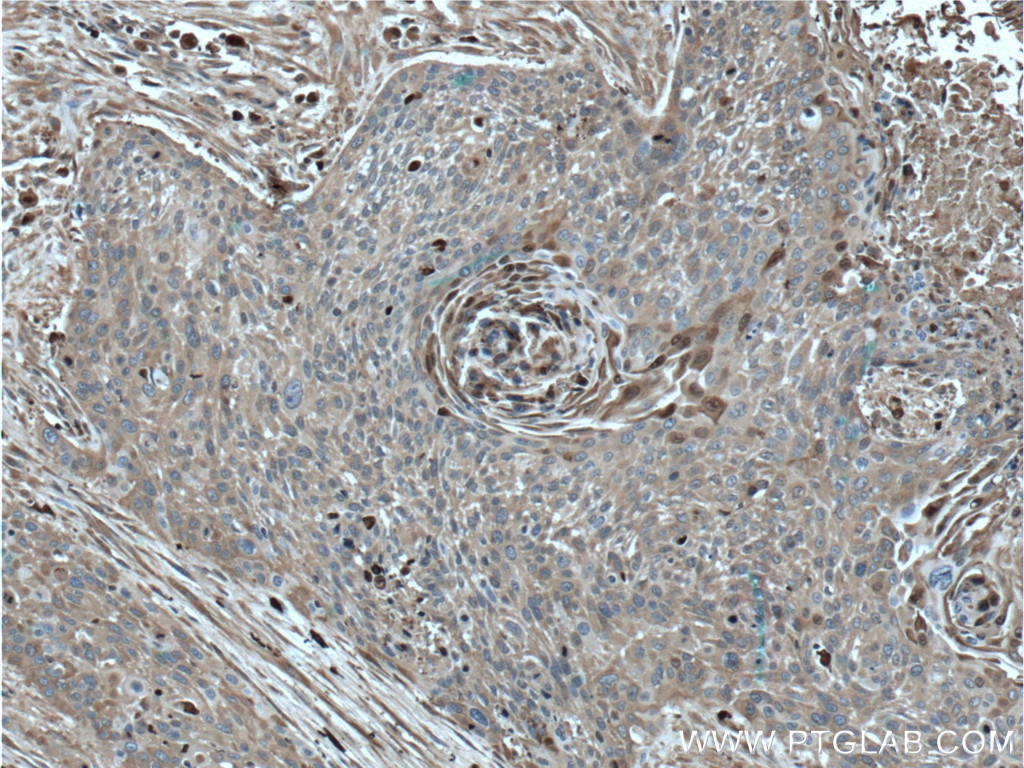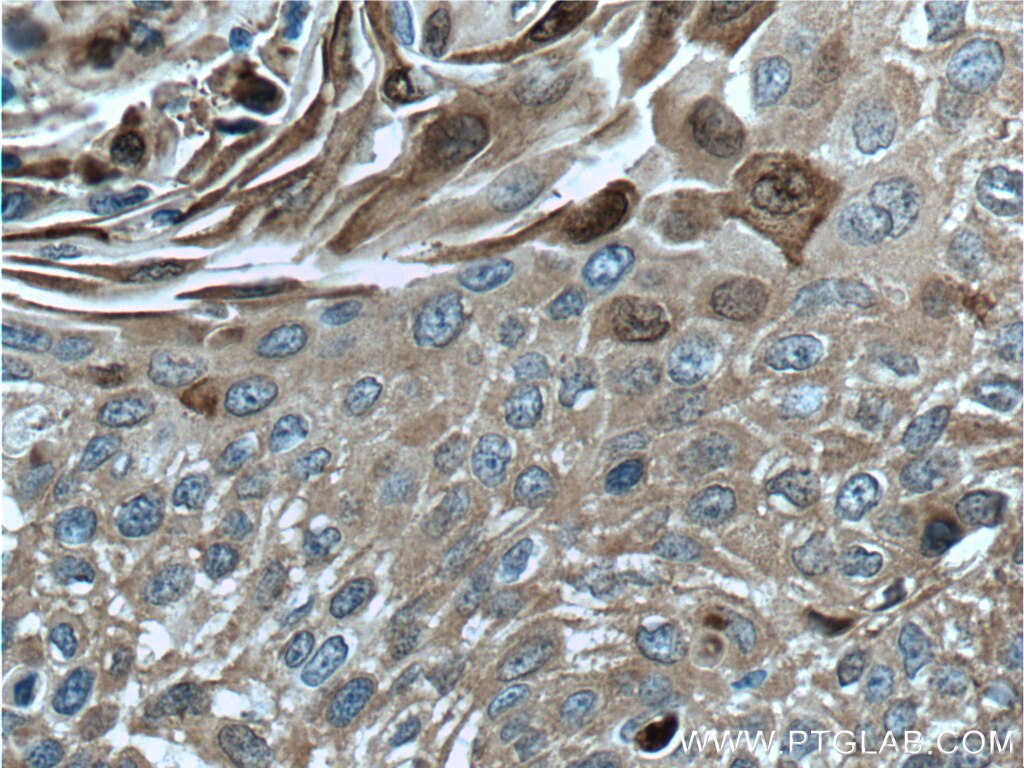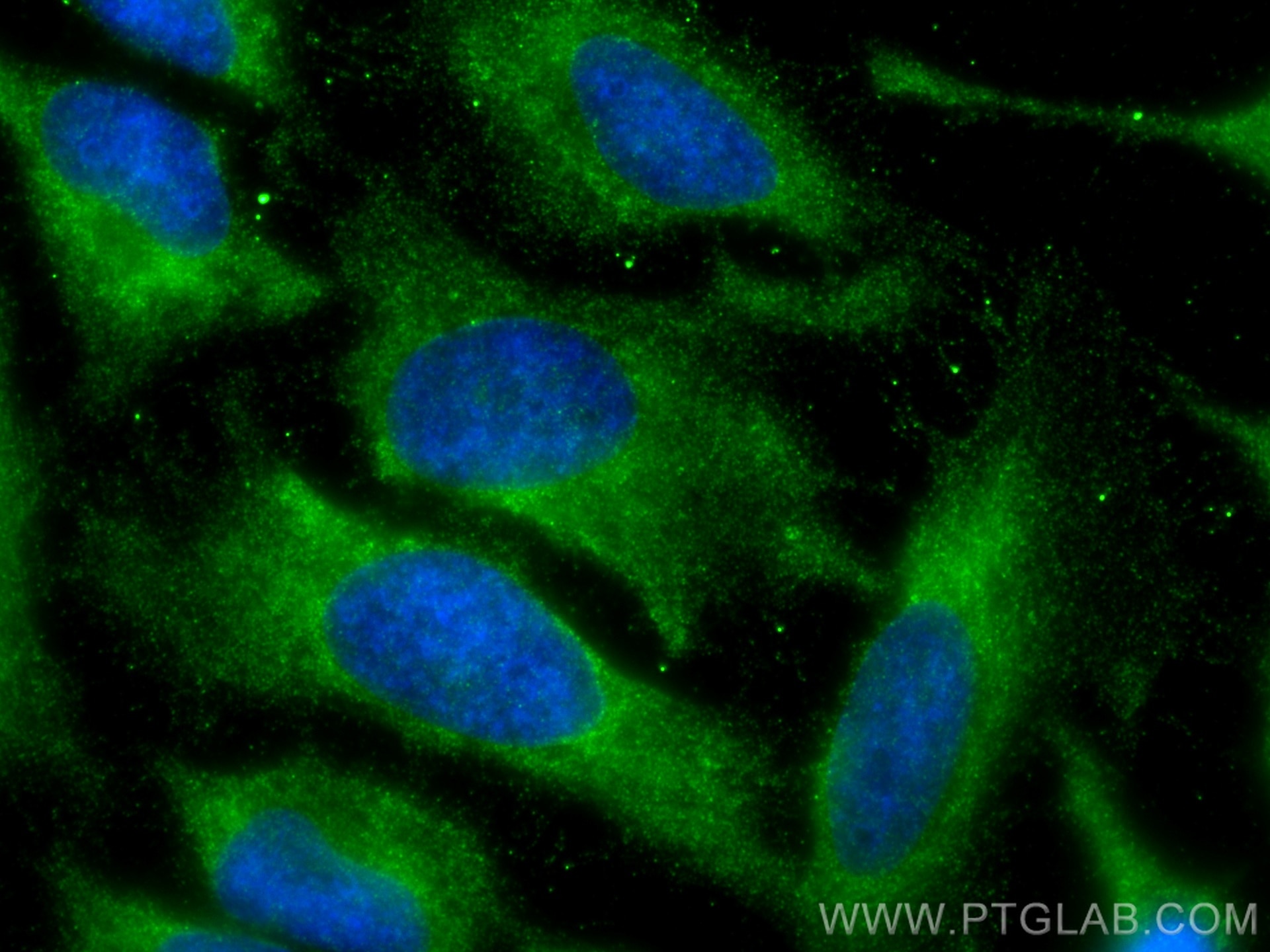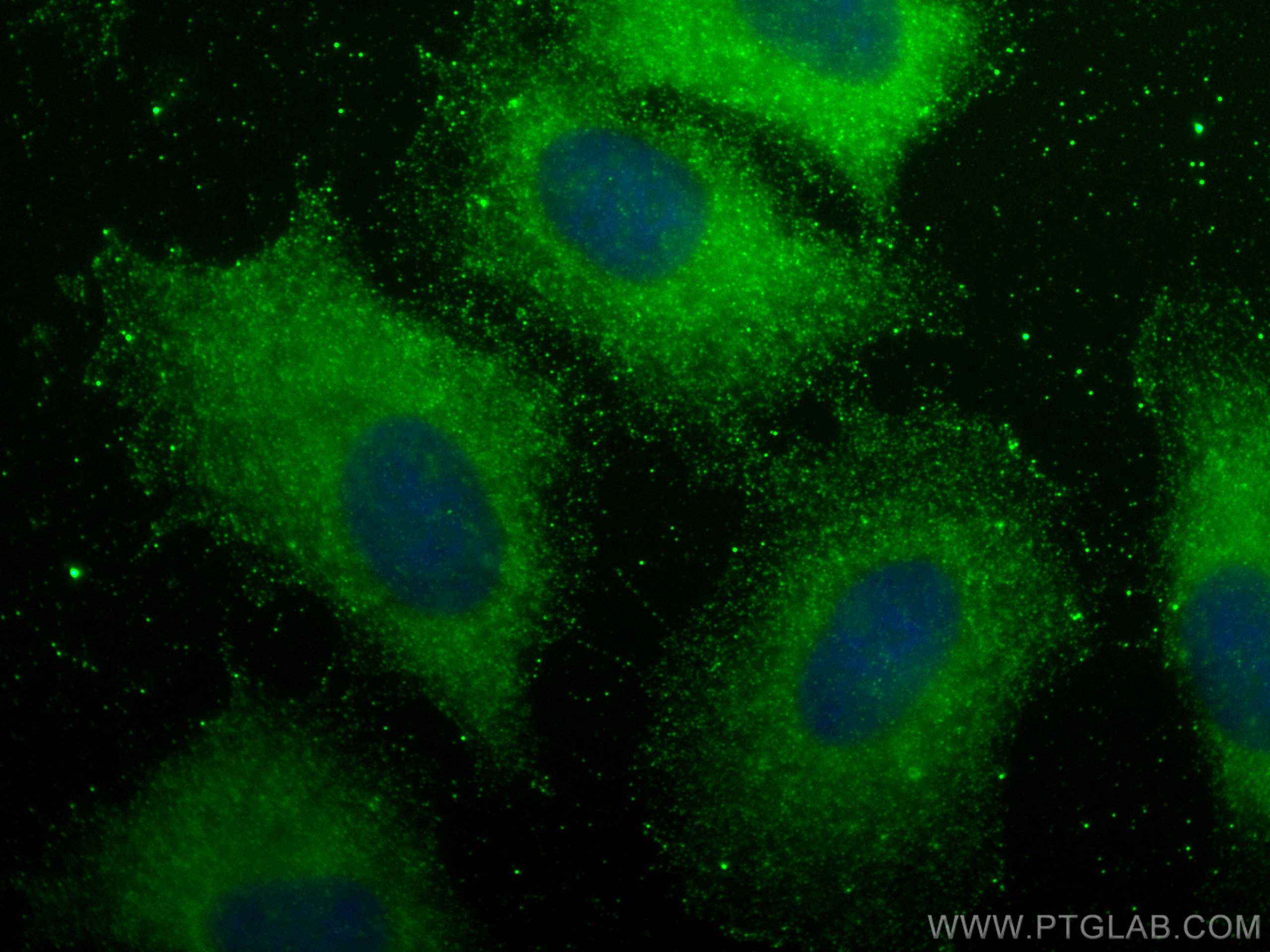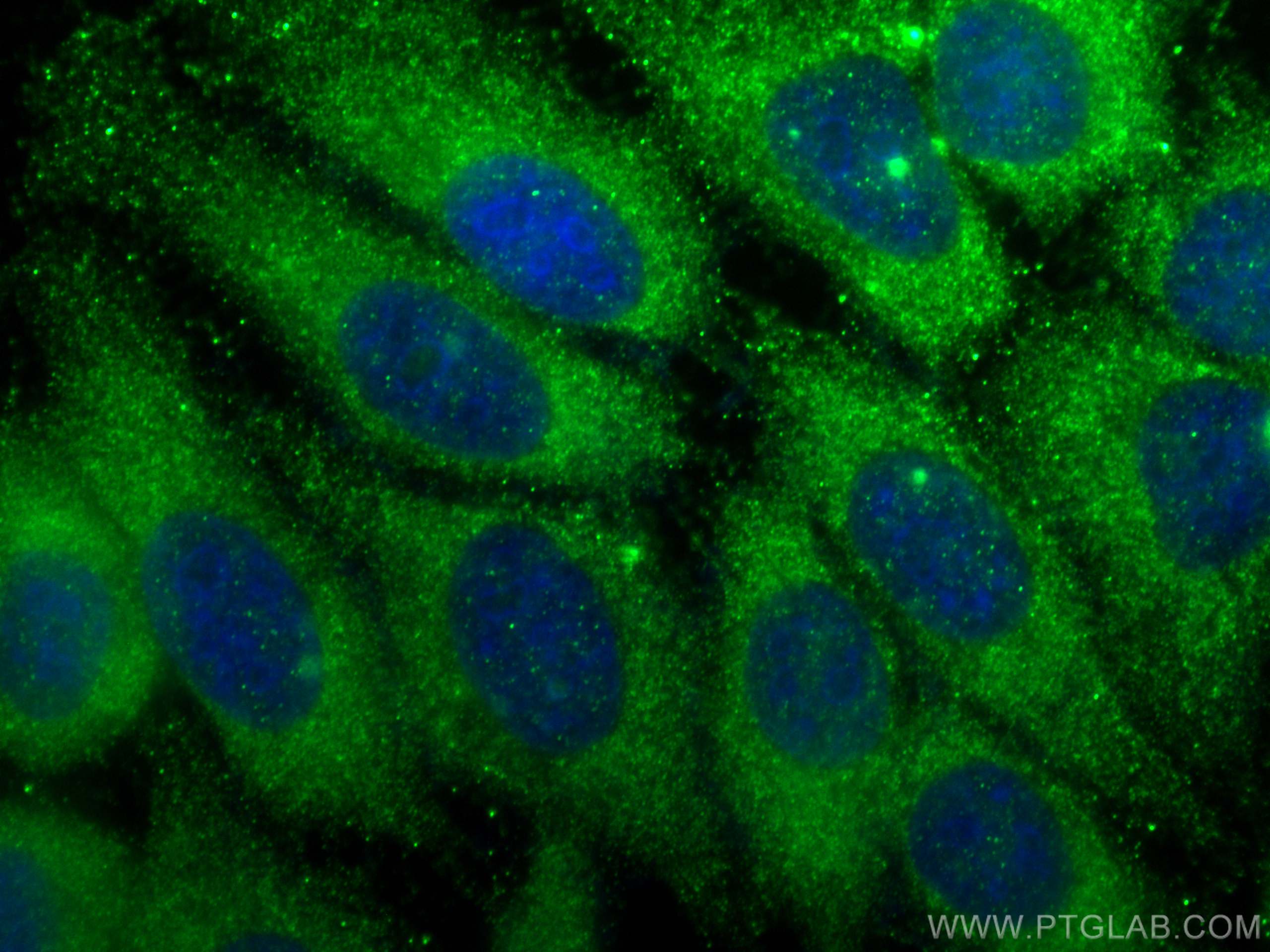- Phare
- Validé par KD/KO
Anticorps Polyclonal de lapin anti-S100A9
S100A9 Polyclonal Antibody for IF, IHC, IP, WB, ELISA
Hôte / Isotype
Lapin / IgG
Réactivité testée
Humain, souris et plus (1)
Applications
WB, IP, IHC, IF, FC, CoIP, ELISA
Conjugaison
Non conjugué
N° de cat : 26992-1-AP
Synonymes
Galerie de données de validation
Applications testées
| Résultats positifs en WB | cellules HL-60, cellules MCF-7, cellules THP-1 |
| Résultats positifs en IP | cellules MCF-7, |
| Résultats positifs en IHC | tissu de cancer du sein humain, tissu d'amygdalite humain, tissu de cancer de l'œsophage humain, tissu de cancer du foie humain, tissu splénique de souris il est suggéré de démasquer l'antigène avec un tampon de TE buffer pH 9.0; (*) À défaut, 'le démasquage de l'antigène peut être 'effectué avec un tampon citrate pH 6,0. |
| Résultats positifs en IF | cellules HeLa, cellules A549, cellules HepG2 |
Dilution recommandée
| Application | Dilution |
|---|---|
| Western Blot (WB) | WB : 1:1000-1:4000 |
| Immunoprécipitation (IP) | IP : 0.5-4.0 ug for 1.0-3.0 mg of total protein lysate |
| Immunohistochimie (IHC) | IHC : 1:50-1:500 |
| Immunofluorescence (IF) | IF : 1:200-1:800 |
| It is recommended that this reagent should be titrated in each testing system to obtain optimal results. | |
| Sample-dependent, check data in validation data gallery | |
Informations sur le produit
26992-1-AP cible S100A9 dans les applications de WB, IP, IHC, IF, FC, CoIP, ELISA et montre une réactivité avec des échantillons Humain, souris
| Réactivité | Humain, souris |
| Réactivité citée | rat, Humain, souris |
| Hôte / Isotype | Lapin / IgG |
| Clonalité | Polyclonal |
| Type | Anticorps |
| Immunogène | S100A9 Protéine recombinante Ag25764 |
| Nom complet | S100 calcium binding protein A9 |
| Masse moléculaire calculée | 13 kDa |
| Poids moléculaire observé | 14 kDa |
| Numéro d’acquisition GenBank | BC047681 |
| Symbole du gène | S100A9 |
| Identification du gène (NCBI) | 6280 |
| Conjugaison | Non conjugué |
| Forme | Liquide |
| Méthode de purification | Purification par affinité contre l'antigène |
| Tampon de stockage | PBS avec azoture de sodium à 0,02 % et glycérol à 50 % pH 7,3 |
| Conditions de stockage | Stocker à -20°C. Stable pendant un an après l'expédition. L'aliquotage n'est pas nécessaire pour le stockage à -20oC Les 20ul contiennent 0,1% de BSA. |
Informations générales
S100A9 is a calcium binding protein as a member of the S100 family of proteins. S100 proteins are low molecular weight (9 to 14 kDa) intracellular calcium-binding proteins that control key cellular pathways including regulation of the cytoskeleton, cell migration and adhesion, and host oxidative defense. S100A9 may exist as a homodimer, heterodimer with an S100A8 partner (S100A8/A9), or as a heterotetramer with an S100A8 partner(S100A8/A9). S100A8 and S100A9 are found intracellularly in granulocytes, monocytes, and early differentiation stages of macrophages.
Protocole
| Product Specific Protocols | |
|---|---|
| WB protocol for S100A9 antibody 26992-1-AP | Download protocol |
| IHC protocol for S100A9 antibody 26992-1-AP | Download protocol |
| IF protocol for S100A9 antibody 26992-1-AP | Download protocol |
| IP protocol for S100A9 antibody 26992-1-AP | Download protocol |
| Standard Protocols | |
|---|---|
| Click here to view our Standard Protocols |
Publications
| Species | Application | Title |
|---|---|---|
Cell Res Comparison of viral RNA-host protein interactomes across pathogenic RNA viruses informs rapid antiviral drug discovery for SARS-CoV-2. | ||
Sci Adv Gut microbiota from patients with arteriosclerotic CSVD induces higher IL-17A production in neutrophils via activating RORγt. | ||
Theranostics Pancreatic ductal deletion of S100A9 alleviates acute pancreatitis by targeting VNN1-mediated ROS release to inhibit NLRP3 activation.
| ||
Theranostics Hepatic RACK1 deficiency protects against fulminant hepatitis through myeloid-derived suppressor cells. | ||
Acta Physiol (Oxf) Keratin 1 attenuates hypoxic pulmonary artery hypertension by suppressing pulmonary artery media smooth muscle expansion. | ||
Mol Cell Proteomics Global Proteome and Phosphoproteome Characterization of Sepsis-induced Kidney Injury |
